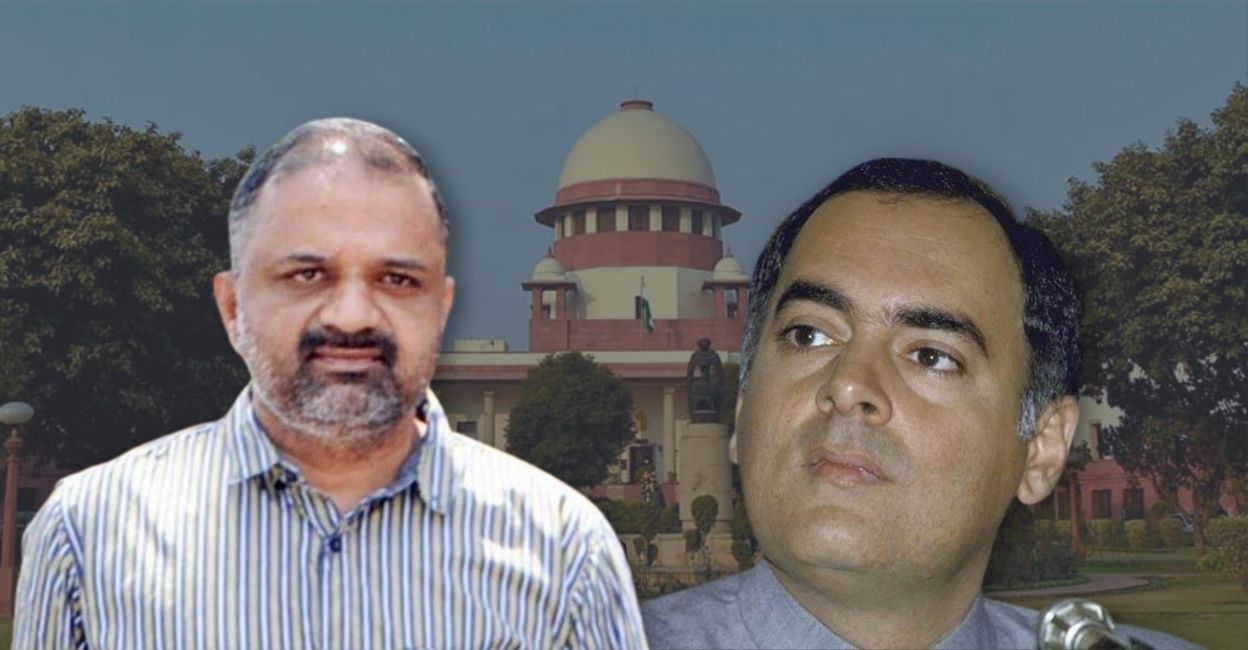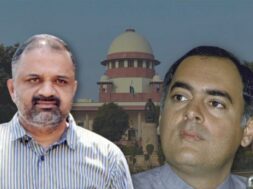
NEW DELHI, May 18: The Supreme Court on Wednesday invoked its extraordinary powers to do “complete justice” under Article 142 of the Constitution and ordered the release of A.G. Perarivalan, a convict in the assassination of the former prime minister Rajiv Gandhi..
A Bench led by Justice L. Nageswara Rao, in its judgment, took into consideration Perarivalan’s long incarceration for over 30 years to order his release. Perarivalan is currently on bail. His death penalty had earlier been commuted to life sentence for murder. Terrorism charges were earlier withdrawn.
The court held that the Tamil Nadu Council of Ministers’ advice of September 9, 2018, to pardon Perarivalan was binding on the Governor under Article 161 (Governor’s power of clemency) of the Constitution. It said the long delay and the governor’s reluctance to take the pardon call has compelled the court to employ its constitutional powers under Article 142 to do justice to Perarivalan.
The court dismissed the Centre’s argument that the President exclusively, and not the Governor, had the power to grant pardon in a case under Section 302 (murder) of the Indian Penal Code, saying this contention would render Article 161 a “dead-letter” and create an extraordinary situation whereby pardons granted by Governors in murder cases for the past 70 years would be rendered invalid.
Senior advocate Rakesh Dwivedi, for Tamil Nadu, had argued that the prospect of the court waiting for the President’s decision on the mercy plea, as put forward by the Centre, was “completely absurd.” Dwivedi, along with Tamil Nadu Additional Advocate General Amit Anand Tiwari and advocate Joseph Aristotle, had said federalism would go for a toss if that was allowed by the court. The court protected federalism by holding that States had the power to advice and aid the Governor in case of pleas of pardon under Article 161 made by convicts in murder cases.
In the long years of litigation, the Centre, had initially assured the Supreme Court that the Governor would take a call on Perarivalan’s pardon plea, only to suddenly change tack in November 2020 to say that it was the President, under advice of the Centre, who was authorised to decide the plea.
An affidavit filed by the Ministry of Home Affairs last year had submitted that the President of India was the “appropriate competent authority” to deal with Perarivalan’s request for freedom. The Ministry’s short affidavit had said “His Excellency the Governor of Tamil Nadu considered all the facts on record and after perusal of the relevant documents, recorded that the Honourable President of India is the appropriate competent authority to deal with the request for remittance vide his order dated January 25, 2021. The proposal received by the Central government will be processed in accordance with law”.
The Centre had also highlighted that the case against Perarivalan concerned the assassination of none other than a former Prime Minister. Forty-three other people had sustained serious injuries in the bomb explosion at Sriperumbudur in Tamil Nadu in 1991.
But Perarivalan had contended that his role in the crime extended to supplying two nine-volt batteries without the knowledge of what it was going to be used for. He said his confession under the lapsed TADA to a police officer was not valid evidence. He said he was a “19-year-old boy when his mother handed him over to the CBI… and now has lost all his prime youth in prison, that too, in death row under solitary confinement for more than 16 years.” He said his “aged mother and father were waiting for their only son to join them at least in the last years of their life.”
Earlier, Perarivalan had sought an order from the Supreme Court to stay his life sentence till the CBI-led multidisciplinary authority’s inconclusive probe into the larger conspiracy behind the assassination was completed. He had described his case as “unique” and had related the harsh circumstances under which he had pursued an education in prison. He had said his health had taken a severe beating from the effects of “death row syndrome.”
(Manas Dasgupta)













